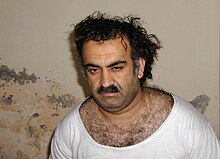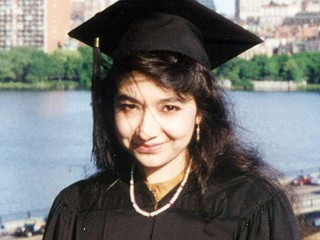By HUSSAIN AFZAL and DEB RIECHMANN (AP) – 38 minutes ago
"PARACHINAR, Pakistan — Pakistan blocked a vital supply route for U.S. and NATO troops in Afghanistan on Thursday in apparent retaliation for an alleged cross-border helicopter strike by the coalition that killed three Pakistani frontier troops.
The blockade appeared to be a major escalation in tensions between Pakistan and the United States.
A permanent stoppage of supply trucks would place massive strains on the relationship between the two countries and hurt the Afghan war effort. Even a short halt is a reminder of the leverage Pakistan has over the United States at a crucial time in the 9-year-old war.
By midmorning, a line of around 100 NATO vehicles was waiting to cross the border into Afghanistan, officials said.
"We will have to see whether we are allies or enemies," Pakistani Interior Minister Rehman Malik said of the border incident, without mentioning the blockade.
NATO said it was investigating Pakistani reports that coalition aircraft had mistakenly attacked its forces. The coalition has on at least one other occasion acknowledged mistakenly killing Pakistani security forces stationed close to the border.
Over the weekend, NATO helicopters fired on targets in Pakistan at least two times, killing several suspected insurgents they had pursued over the border from Afghanistan. Pakistan's government protested the attacks, which came in a month during which there have been an unprecedented number of U.S. drone missile strikes in the northwest, inflaming already pervasive anti-American sentiment among Pakistanis.
The surge in attacks and apparent increased willingness by NATO to attack targets on the border, or just inside Pakistan, could be a sign the coalition is losing patience with Pakistan, which has long been accused of harboring militants in its lawless tribal regions.
Pakistani security officials said Thursday's deadly airstrike took place on a checkpoint in the Upper Kurram region.
The dead men were from a paramilitary force tasked with safeguarding the border, the security officials said. Their bodies were taken to Parachinar, the region's largest town, one official said. Three troops also were wounded.
Several hours later, officials reported another rocket strike by NATO helicopters about nine miles (15 kilometers) from the first one. There were no injuries.
Lt. Col. John Dorrian, a spokesman for intelligence and special operations at NATO headquarters in Kabul, said coalition forces observed early Thursday what they believed were insurgents firing mortars at a coalition base in Dand Wa Patan district of Paktia, which is next to Upper Kurram.
"A coalition air weapons team called for fire support and engaged the insurgents," he said. "The air weapons team reported that it did not cross into Pakistani air space and believed the insurgents were located on the Afghan side of the border."
Dorrian said Pakistani military officials had informed the NATO military coalition that members of their border forces had been struck by coalition aircraft. He said the coalition was reviewing the reports to see if the operation in Paktia was related to those reports.
Hours after the incident, Pakistani authorities were ordered to stop NATO supply trucks from crossing into Afghanistan at the Torkham border post, a major entryway for NATO materials at the edge of the Khyber tribal region, two government officials said.
No reason was given, but earlier this week Pakistan threatened to stop providing protection to NATO convoys if the alliance's helicopters attacked targets inside Pakistan again.
Some 80 percent of non-lethal supplies for foreign forces fighting in landlocked Afghanistan are transported over Pakistani soil after being unloaded at docks in Karachi, a port city in the south. While NATO and the United States have alternative supply routes, the Pakistani ones are the cheapest and most convenient.
In June 2008, a U.S. airstrike killed 11 Pakistani troops and frayed ties between the two nations. Pakistan said the soldiers died when U.S. aircraft bombed their border post in the Mohmand tribal region. U.S. officials said coalition aircraft dropped bombs during a clash with militants. They expressed regret over the deaths, but said the attack was justified.
Polls show many Pakistanis regard the United States as an enemy, and conspiracy theories abound of U.S. troops wanting to attack Pakistan and take over its nuclear weapons. The Pakistani government has to balance its support for the U.S. war in Afghanistan — and its need for billions of dollars in American aid — with maintaining support from its own population.
Riechmann reported from Kabul, Afghanistan. Associated Press writers Munir Ahmed in Islamabad, Riaz Khan in Peshawar and Matiullah Achakzai in Chaman contributed to this report."
Cheers for the Pakistani Government
this show that all of the NATO forces are acting in Afghanistan from PAkistan. A very good step taken by our government.....











